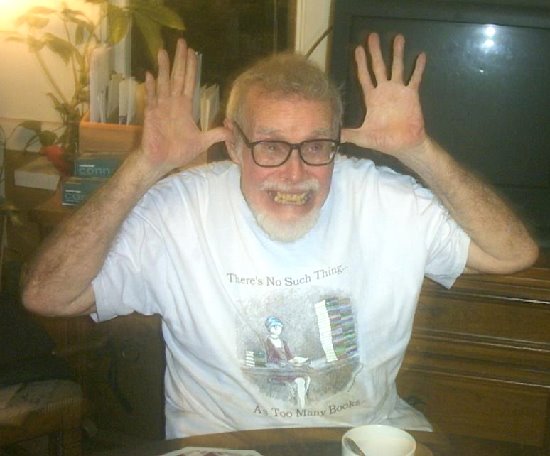
Having just finished final grading for my first English class, I must have been relieved, exhilarated, disappointed, understood that achievement is relative—all those things. Because a dream that followed that night was extraordinary, and left me with a feeling I’d been allowed a glimpse of the ultimate “reality.”
It took place in and around a museum that kept expanding, becoming more like a castle, and then like an entire city, but still all one building, with halls that were sometimes streets; rooms that were sometimes entire mansions, and all at varying levels. An exhibition was about to open, and I was helping. The small room I was working in held a model of the base of an obelisk. The model was of styrofoam, painted gold, which I discovered when I accidentally broke off part of it. Distressed, I left the room, and noticed that other rooms were being filled with antique furniture. Outside was a model of the entire obelisk, but it had fallen over due to the wind. It, too, was of styrofoam. I didn’t know whether I should be relieved that others had had problems with the exhibits too, or if I should tell the woman supervising the re-erection of the outdoor obelisk about my breaking the other exhibit. Before I could say much, a golden object fell from the sky. It was a tiny piece of armor, just the chest part of it. It was made for a monkey, I knew. But inside it were other objects, including an ancient gold coin, which the woman gave to me despite my murmuring that I did not deserve it.
Coin in hand, I ascended some stairs and revisited the room where the obelisk base had been, but someone had substituted another exhibit. My worry gone, I went to a balcony that overlooked a landscape, and sat down in a chair. I soon became overwhelmed by the view to the extent that I no longer had the faintest idea that I might be dreaming; this was reality. I would never wake from it, never leave it, never grow tired of it. I knew the privilege of seeing this perfect sight of hills, clouds, and sun was somehow due to the coin in my hand. The clouds moved continuously in a hypnotic swirling motion, creating bursts of sunlight and shade in my eyes. There was no sign of sentient life, let alone “civilization.” All the forces necessary to Understanding and Experience and Acceptance were contained in this view, and although there was a feeling of slightly fearful awe, I knew I would never lose sight of this; it was the ultimate reality.
When I did wake up, I was neither disappointed nor relieved. My own familiar “reality” was adequate and pleasant. But I now suspect it is not the ultimate one.











